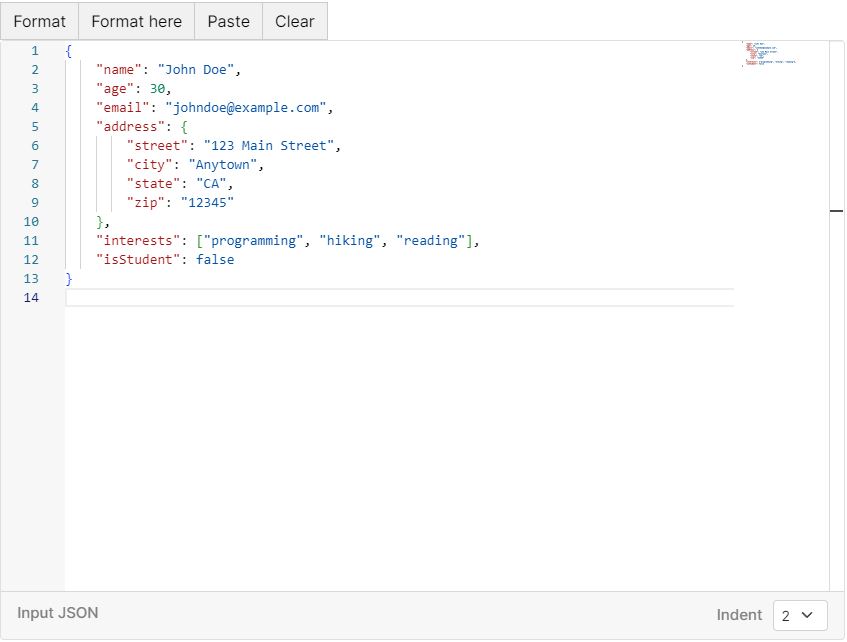Welcome to JSON-TO
Your central hub for indispensable JSON manipulation tools. Our platform provides a comprehensive suite of utilities meticulously crafted to streamline the process of creating, editing, and analyzing JSON data. Whether you need to convert JSON to various popular formats, rigorously validate syntax, or create custom schema with ease, Json-to empowers you with the tools you need for efficient JSON data management. Elevate your development projects and ensure data integrity, all within the convenient and user-friendly Json-to ecosystem.
JSON ↔ String
JSON ↔ Arrays
What is a Json?
JSON, which stands for JavaScript Object Notation, is a lightweight, human-readable data interchange format used to represent structured data. It was derived from JavaScript, but over time it has become a language-independent standard, widely used in web programming and applications in general.
What is the basic structure of a Json?
JSON organizes data into a basic structure of key-value pairs. Each pair consists of a key (also known as name) and a value, separated by a colon (:). Key-value pairs are separated by commas and the entire set is delimited by curly braces {}. Objects can also be nested within other objects, allowing complex data structures to be represented. Here we leave you an image of the structure of a Json.

What data types does Json support?
JSON supports several data types, although it is important to note that JSON is a simple text data format and does not natively support complex data types such as dates, binary, or function references. To handle these more complex data types, custom conversion or serialization is often required when representing them in JSON. Below we show you the data types that Json supports natively
- Text strings: Represented within double quotes (" ").
- Numbers: Which can be integers or floating point numbers.
- Booleans: which values are true or false
- Nulls: null
- Objects: May contain other key-value pairs.
- Arrays: An ordered list of values.
What are the advantages of Json?
Json has great advantages when working with data.
- Lightweight: JSON files are relatively small and easy to transmit over the network.
- Readability: It is easy for programmers to understand and debug.
- Cross-platform support: Being language independent, it can be used on a wide variety of systems and applications.
What programming languages use Json?
Json is widely supported in a variety of programming languages. Some of the programming languages that commonly use JSON are:
JavaScript: Since JSON originated in JavaScript, its integration is natural and it is widely used in web applications.
Python: Python has a built-in library called json that allows serialization and deserialization of JSON objects.
Java: In Java, you can use libraries like Gson or Jackson to work with JSON.
Rust: Rust provides libraries like Serde for JSON serialization and deserialization.
Ruby: Ruby includes a gem called JSON for working with JSON.
PHP: PHP provides built-in functions to encode and decode JSON data. Libraries like Symfony Serializer are also used.
C/C++: There are third-party libraries that allow you to parse and generate JSON in C and C++, such as jsoncpp.
Swift: In iOS app development, Swift uses the JSONSerialization framework to work with JSON.
Go (Golang): Go has a standard library called encoding/json that allows you to work with JSON efficiently.
C#: For .NET-based applications, the System.Text.Json library is used to work with JSON.
Kotlin: In Android app development, Kotlin uses libraries like Gson to manipulate JSON.
Haskell: the Aeson library is used to work with JSON.

